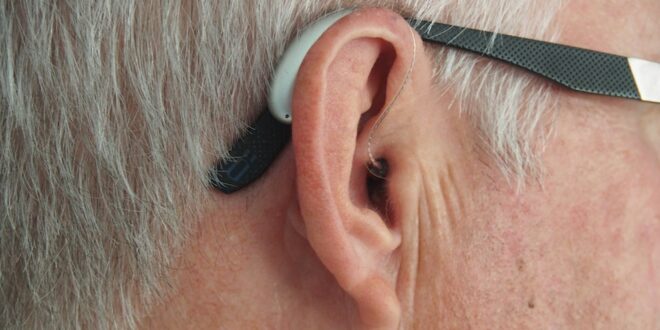The beginning of hearing loss is not easy to acknowledge. And that’s understandable. Hearing is one of life’s most valued senses. It enables us to listen to nature, music, entertainment, and the voices of those we love most. The thought this, and everyday communication, is slipping away is too great a grief to bear, for many, and so it can seem easier to blame the condition on other factors. A person with increasing hearing loss may attribute their decreased hearing to ‘the fact’ others are not speaking clearly, or the quality of sound in their phone, television or radio has deteriorated.
Even once a person has been convinced their hearing is impaired, they may still shy away from seeking help. This can be for a number of reasons, including a mistrust of the professionals who can help them, the cost of hearing aids, and the stigma they feel associated with wearing a hearing aid. There is often the fear a hearing aid will never be able to restore hearing to what is once was.
It is no wonder, then, the average time before someone with hearing loss seeks help for the condition is 7 years. Those 7 years can feel very long, not only to the sufferer, but also to their friends and family. During this time, a number of detrimental situations can arise. The following are just a few, but they illustrate the importance of seeking regular hearing checks, and of listening to others when they offer help or advice:
Social isolation
As hearing loss develops, a sufferer can feel embarrassed in social situations to the degree they no longer go out to gatherings such as book clubs and walking groups. Family and friends, tired of having to raise their voice, or hurt at constantly being blamed for ‘mumbling’, begin to limit visits. Even a spouse or partner can give up conversing when they are forever being berated for not speaking clearly. Gradually, the person with hearing loss retreats further and further into themselves until they are living in an isolated world of their own, even while being among others. If not checked, situations like this can lead to anxiety and depression.
Danger
The ability to hear is a huge part of keeping ourselves safe. As hearing deteriorates without being acknowledged, a sufferer is at risk of accidents while crossing the street, cycling, or driving. At appointments, such as with a banking advisor or a medical specialist, important information can easily be missed if hearing is not adequate. In the home, the inability to hear running water, hissing gas, or a boiling pot on the stove can be a danger. In an emergency situation, phoning for help or advice can be problematic.
Everyday nuisance
Hearing is a memory jogger. As hearing deteriorates, it can become impossible to notice small but important details such as a pet wanting to be let out or ‘asking’ to be fed. We may miss important phone calls if the phone is not right beside us. We may fail to hear the door bell and miss out on a delivery or the visit of a friend. As entertainment such as television, the radio or playing a music instrument drops off the radar because of hearing loss, more and more pleasure disappears from our days.
If you suspect you are suffering from hearing loss, or even if you don’t, but others you would normally trust are suggesting the possibility to you, try to keep an open mind about it. Accept you have fears about the situation, but make an appointment to visit your GP for advice. Hearing loss is a common problem, and there are numerous ways in which you can receive help to hear again.









Join the Discussion
Type out your comment here:
You must be logged in to post a comment.